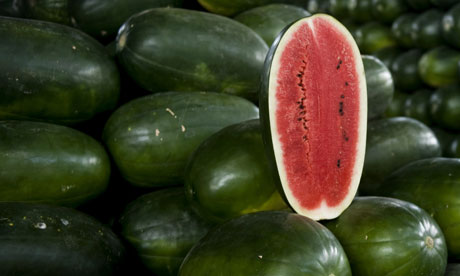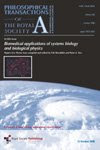Watermelon is a word that tells you what is wrong with the climate change debate.
The right believes the agenda is green on the outside but red on the inside – we must take the political poison out of the debate

"For some libertarians, it is the insult that expresses what greenies and climate scientists are really up to. Behind all the acronyms and the jargon, they say, is a conspiracy to promote a nakedly political aim – anti-big business; anti-free market; pro-tax increases. In short, green on the outside but red on the inside.
The full conspiracy theory requires an impressive degree of paranoia, but one of the reasons the jibe is so persistent is that, if we're honest, there is a grain of truth to it – at least among some in the green movement and on the left.
Many of the policy responses to the climate change problem – consume less, regulate businesses, curb big oil and coal, restrict car use – feel more comfortable to those on the left than the right of the political spectrum. And as a result, right-leaning politicians and thinkers are in danger of losing grip on the most important issue of our age. That has already happened in large measure in America. It would be disastrous if it happened in the UK too.
This is the backdrop to the parliamentary science and technology select committee's inquiry into the communication of climate science, to which I (J.Randerson) gave evidence on Monday. The Met Office is being questioned on Wednesday. The MPs on the committee are trying to get to the bottom of why the public is still confused about climate science when the core science has been pretty clear for years. The thrust of many of their questions was "what could the media be doing better to communicate the science?"
The elephant in the room at the parliamentary inquiry though has been that, consciously or not, there are people on all sides of the climate debate who argue backwards from a cultural or political position. As a result, arguments about the science of climate change become a proxy for what is really a political argument. If you like the prescription, then you embrace the diagnosis. If you don't, you undermine the diagnosis or attack the doctor.
But if it was just a question of putting across complex science to a lay readership whose attention must be grabbed from the numerous other shiny news stories on offer that would be, if not easy, at least no harder than your average science story. Science journalists' stock in trade is making unfamiliar ideas intelligible, compelling, relevant and entertaining. And let's face it, climate science may be complex, but the Higgs boson is harder to grasp than global warming.
REFERENCES:
Why a watermelon tells you what's wrong with the climate debate - Zunia.org
Full article by James Randerson of The Guardian, Environment, 2013/sep/11/Climate-Debate









No comments:
Post a Comment
Comments, questions and/or suggestions welcome. If I can be of further, more focused assistance, do not hesitate-ask. Comments are moderated to assist further enquiry and assistance.